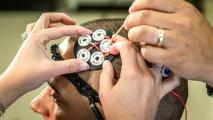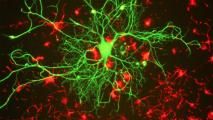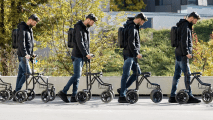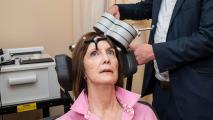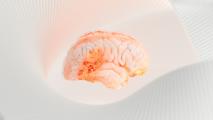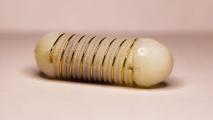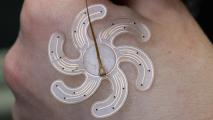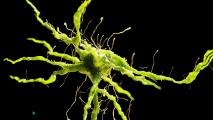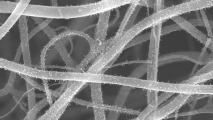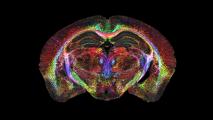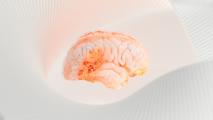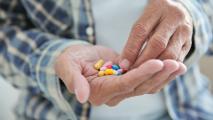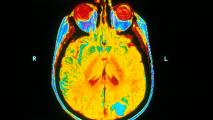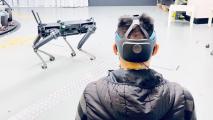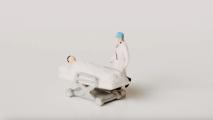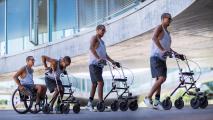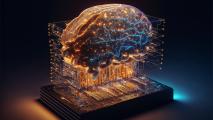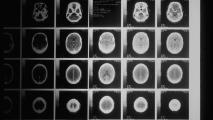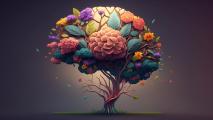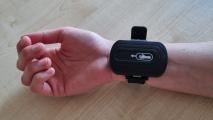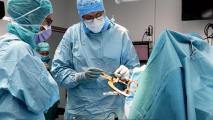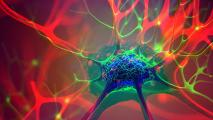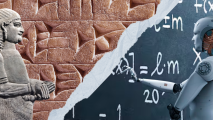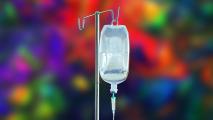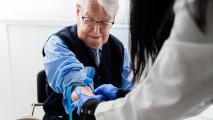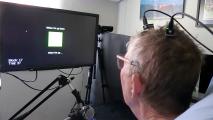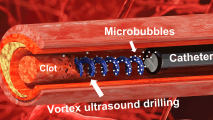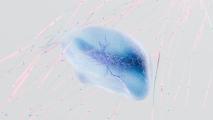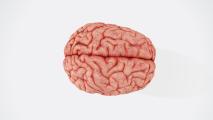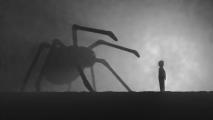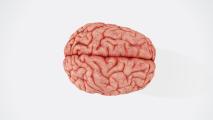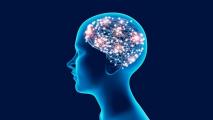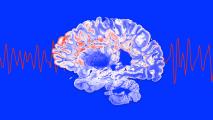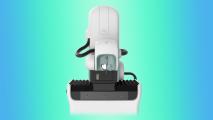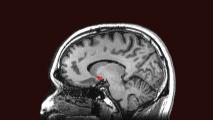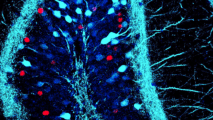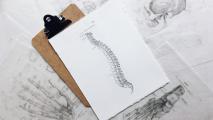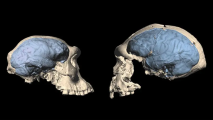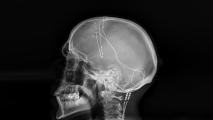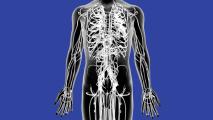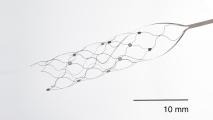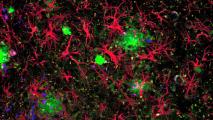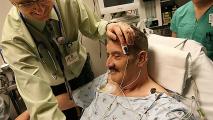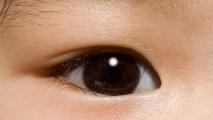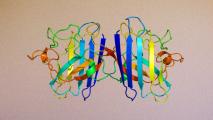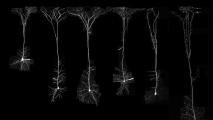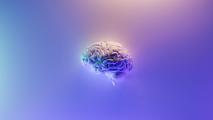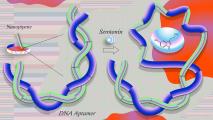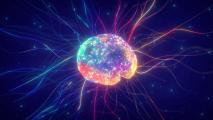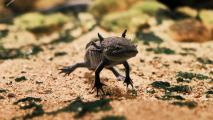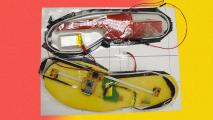Field: Neuroscience
The neurons that make us feel hangry
Researchers gave pinpointed a cluster of cells called AgRP neurons near the underside of the brain that may create “hangry” feelings.
Rhythmic brain stimulation could boost cognitive function
An analysis of over 100 studies helps resolve conflicting evidence on the benefits of transcranial alternating current stimulation, or tACS.
Ketamine is as effective as ECT for depression, study shows
A trial of patients with treatment-resistant depression found ketamine to be at least as effective as electroconvulsive therapy.
Nope, coffee won’t give you extra energy
You might feel like coffee gives you the energy to get through the day – but chances are, you're not getting as much as you think.
Zapping the brain during sleep helps memories form
Brain stimulation during sleep appears to help with memory consolidation, suggesting a new way to treat people with memory disorders.
Adult-made neurons mature longer, have unique functions
Neuroscientists don't know the degree to which adult brains generate new neurons, but adult-made neurons appear to have more "mature" functions.
The first 10 minutes of sleep can unlock your creative potential
According to prior research, the first ten minutes of sleep, called N1, can provide a creative boost when it comes to solving problems.
Chronic pain can be objectively measured using brain signals
Even though pain is universal and we know it happens in the brain, we've never before had a way to objectively measure its intensity.
Do we finally know what causes Alzheimer’s?
The first treatments proven to slow cognitive decline in Alzheimer’s are helping settle a decades-long debate about how the disease starts.
Paralyzed man walks again using only his thoughts
A man with paralyzed legs is walking again thanks to a “digital bridge” between his brain and a spinal stimulator.
Depression treatment reverses “backwards” brain signals
Transcranial magnetic stimulation (TMS) appears to relieve depression by correcting brain signals that are traveling the wrong direction.
Scientists discovered a “minimum mechanism” required for consciousness
Scientists stimulated the brains of macaque monkeys in an effort to determine which areas are responsible for driving consciousness.
New electronic pill zaps the stomach to regulate hunger
MIT’s new electronic pill stimulates stomach cells to regulate hunger — showing it's possible to hack the powerful gut-brain axis.
Psychedelic inspires discovery of two new drug candidates for depression
Researchers have found ibogaine-inspired compounds effective in treating depression and addiction in mouse models.
This soft brain implant unfurls its arms under the skull
A soft brain implant that unfurls under the skull could make implantation surgeries less costly and risky.
Man’s mutated gene appears to delay onset of Alzheimer’s
The discovery of a second person naturally resistant to a genetic form of Alzheimer’s could lead to treatments for the disease.
LSD flashbacks and a psychedelic disorder that can last forever
LSD flashbacks have been studied for decades, though scientists still aren't quite sure why some people experience them.
Study: Parenthood seems to rewire gray matter
A study found that couples who co-parent together display similar brain activity, suggesting they become greatly attuned to each other.
Networks of silver nanowires seem to learn and remember, much like our brains
Self-organising networks of tiny silver wires appear to learn and remember in much the same way as the thinking hardware in our heads.
Earbud-like tech will monitor sleep for signs of Parkinson’s
An EEG device that’s worn in the ear during sleep could help doctors diagnose Parkinson’s and Alzheimer’s long before symptoms appear.
This brain image is 64 million times sharper than standard MRI
A new brain imaging technique that generates ultra-high resolution images of mouse brains could revolutionize neuroscience research.
How frontotemporal dementia, the syndrome affecting Bruce Willis, changes the brain
What is FTD, the type of dementia that leads to inappropriate social behavior, impulsivity, and loss of empathy?
Dementia patients are “rallying” just before death. Scientists want to know why.
New research into terminal lucidity could revolutionize our understanding of dementia — and maybe even give us a way to reverse it.
Alzheimer’s disease: an illness that needs a long overdue cocktail
Scientists are starting to agree that the "holy grail" solution for Alzheimer's is more likely to be a drug cocktail than a single treatment.
Epilepsy surgery has a success rate of only 50%. This digital brain may change that.
Using patient data and AI, French researchers have created a digital model of the brain to figure out which brain region needs removed.
Graphene sensor could let you control robots with your mind
The “wonder material” graphene has been used to develop a dry sensor that could enable anyone to control technology with their minds.
Death: how long are we conscious for and does life really flash before our eyes?
When does our consciousness disappear? And are we really flooded by memories in our final moments? Scientists hope to find out.
How close are we to reversing paralysis?
Thanks to groundbreaking innovations in neuroscience, we’re seeing that forms of paralysis long assumed to be permanent can be reversed.
Our new brains: neurotechnology advances that could change everything
Here are the latest developments in neurotech, from brain-computer interfaces to brain-inspired AI.
3D-printing the brain’s blood vessels with silicone could personalize neurosurgery
3D printing could make blood vessel replicas with the soft feel and the structural accuracy surgeons need.
Have scientists found a “brake pedal” for aging?
A new protein discovery may have highlighted a "switch" in brain cells that slows down inflammation and aging.
Wristband device helps to control Tourette’s tics in clinical trial
A new wrist-worn device from the University of Nottingham uses electrical pulses to help curb Tourette syndrome symptoms.
The case for viewing depression as a consciousness disorder
A new hypothesis explains depression as an altered state of consciousness, which could help researchers make an objective diagnostic test.
First ever therapy for rare genetic disorder now approved
The FDA has approved the first drug for Rett syndrome, a genetic neurodevelopmental disorder, which disproportionately affects women and girls.
Psychedelics open a new window on the mechanisms of perception
Some neuroscientists think psychedelics and the hallucinations they induce could help reveal how we generate our perceptions of the world.
Here’s how your sleep affects your immune system
Researchers found that patients who slept less than six hours a night were 27% more likely to have an infection.
Scientists inject stem cells into the brain of Parkinson’s patient
A new stem cell therapy for Parkinson’s disease has just been administered to the brain of a person for the first time.
Cyborg fish grow electrodes in their brains and fins
A gel that turns into an electrode once inside the body might end the need for invasive implantation surgeries.
Breakthrough study discovers that psychedelics breach our neurons
Researchers have discovered that psychedelics can activate 5-HT2A receptors inside of cortical neurons, a possible cause of their therapeutic effects.
First: Spinal cord stimulation helps stroke survivors control arms again
Spinal cord stimulation has been shown to improve upper-limb mobility in stroke survivors for the first time.
DMT therapy appears effective for depression in phase 2 clinical trial
London-based Small Pharma has released positive top-line results for their phase 2a trial of DMT as an antidepressant.
Mindfulness can slow down the brain’s aging and more
The benefits of practicing mindfulness carry over into everyday life – even when you aren’t actively meditating.
Human-rat brain hybrid shows a way to cure blindness
New research has shown that human “mini brains” can integrate with damaged rat brains to perform functions related to sight.
New blood test predicts Alzheimer’s 3.5 years in advance
A blood sample and machine learning helps predict whether people with mild cognitive impairment will soon develop Alzheimer’s.
Why changing your mind is a feature of evolution, not a bug
Reasoning by yourself is a much weaker tool than contributing your reasoning to a group and being flexible to changing your mind.
The most undervalued problem-solving tool? Lateral thinking.
Lateral thinking is a way of approaching problems. It deliberately forgoes obvious approaches in favor of oblique or unexpected ones.
New brain implant breaks record for turning thoughts into text
Stanford researchers have developed a brain-computer interface that allowed a woman to “type” 62 words per minute using only her thoughts.
This “ultrasound vortex” can quickly clear blood clots
Using spiraling ultrasound waves, researchers hope to remove stroke-causing blood clots faster and safer.
Study suggests that exercise should be prescribed to mental health patients
Researchers concluded that exercise should be prescribed to patients with mental health issues before psychiatric drugs.
Brain experiment suggests that consciousness relies on quantum entanglement
Researchers possibly witnessed entanglement in the brain, indicating that some brain activity, like consciousness, operates on a quantum level.
“Jumping genes”: A new model of Alzheimer’s
A new hypothesis suggests that Alzheimer's disease is the result of "jumping genes" in the brain, not inflammation or plaque.
FDA approves new Alzheimer’s medication
Lecanemab, a new Alzheimer’s medication shown to slow cognitive decline in patients, has been granted accelerated approval by the FDA.
Genetic research confirms your dog’s breed influences its personality — but so do you
A dog's breed has a big impact on their personality, but whether they fit your lifestyle is also down to good training.
The “recovery paradox” explains why you’re burnt out
There's regular job stress, and then there's uncertainty, dread, and constant change. Here's how to actually recover from it.
How to use the brain’s own immune cells to stave off Alzheimer’s
Research suggests that microglia play a key role in preventing neurodegenerative diseases by helping to remove toxic waste.
Neuroscientists recommend more carbs and less coffee to combat seasonal depression
Taking small steps to help your circadian rhythm adjust to winter could mean happier times during what are literally the darkest days.
Researchers have developed a way to “decode” depression
Baylor College of Medicine researchers have developed an electrode-based “mood decoder” capable of mapping brain activity to mood.
MIT is testing light and sound to combat Alzheimer’s
MIT researchers are developing a therapy that uses 40-Hz light and sound to alter Alzheimer’s patients’ gamma waves.
AI-based theory explains your weird dreams
Researchers suggest that dreaming helps us generalize our experiences so that we can adapt to new circumstances.
How exercise changes your brain biology and protects your mental health
A psychiatrist and neuroscientist began to think of prescribing exercise as telling patients to take their “exercise pills.”
Anxiety treatment in early childhood can lower long-term mental health risks
Some anxiety is normal and, in fact, necessary and helpful. But what happens when it interferes with a child's daily functioning?
A new class of antidepressant works in 2 hours
Most types of antidepressants work by increasing neurotransmitter levels throughout the brain, which take weeks. A new drug takes hours.
How neuroscience can make us better parents
Kids' brains develop in four main stages. Each has its own particular set of advancements and challenges for parents.
Magnets pull these tiny medical robots deep into the brain
LA-based startup Bionaut Labs is developing micro-sized medical robots that are guided through the body by magnets.
Watch a Neuralink robot insert electrodes into a dummy brain
During a livestreamed event, a Neuralink robot precisely inserted 64 electrode-packed threads into a dummy brain in just 15 minutes.
Exercise boosts the brain — and mental health
New research is revealing how physical activity can reduce and even ward off depression, anxiety and other psychological ailments.
The science of habits
Whether you’re trying to break a bad habit or start a good one, psychologists have some tips to get you started.
How you breathe affects your brain
A psychiatrist and neuroscientists investigate how breathing affect the brain and biological markers of stress and immune function.
Electrically stimulating the brain helps stop binge eating
Two people with binge eating disorder reported that deep brain stimulation helped them control their eating and lose weight in a small study.
Good and bad memories are stored in different neurons, study finds
Positive and negative memories are stored in different parts of the brain, raising the possibility of therapeutic memory manipulation.
Injectable gel repairs severe spinal cord injuries and enables mice to walk
An injectable gel that prevents scar formation and stimulates regeneration successfully repaired severe spinal cord injuries in mice.
Our ancestors first developed humanlike brains 1.7 million years ago
Using computed tomography, a team of researchers generated images of what the brains of early Homo species likely looked like.
New deep brain stimulator is powered automatically by breathing
A deep brain stimulator powered by breathing could eliminate the need for patients to undergo regular battery-change surgeries.
Brain implant translates neural activity into letters, letting a paralyzed man “speak”
A new device allowed a paralyzed patient to "speak," spelling out full sentences in real-time with an error rate of about 8%.
Spinal cord stimulation helps paralyzed patients walk again
Swiss researchers have used epidural electrical stimulation to restore walking in nine people with chronic spinal cord injuries.
Australian man uses brain implant to send texts from his iPad
The Stentrode — a brain-computer interface implanted through minimally invasive surgery — has been used to send text messages from an iPad
“Laughing gas” may offer quick, long-lasting relief from depression
With ketamine showing potential as an antidepressant, researchers investigate another anesthetic: nitrous oxide, or "laughing gas."
New study will put the leading theory about Alzheimer’s to the test
Washington University in St. Louis is embarking on a drug trial that may also put the amyloid hypothesis to its ultimate test.
“Freakonomics” study offers simple strategy for making tough decisions
People who chose change over inaction, regardless of the decision, self-reported being better off and happier after six months.
It’s time to change how we think about electroshock therapy
Electroconvulsive therapy is more effective than ketamine at treating severe depression, according to a new meta-analysis.
Withdrawal symptoms from antidepressants can last over a year
A scientific review found that withdrawal symptoms from antidepressants and antipsychotics can last for over a year.
Deep brain stimulation can be life-altering for OCD sufferers when other treatment options fall short
Deep brain stimulation relies on thin electrodes implanted deep in the brain that deliver electrical currents. Could it treat OCD?
It may be possible to treat inherited blindness, even in adults
A new mouse study suggests that synthetic retinoids may be able to help restore vision in adults with Leber congenital amaurosis.
Three reasons “you” won’t return after this life
Entire religions are constructed around theories of an afterlife, but former monk Stephen Batchelor lists three reasons you won't come back.
Scientists claim “never before” seen results in ALS clinical trial
The ability of tofersen, a gene-based treatment for ALS, to improve symptoms is being hailed as a “treatment milestone.”
Study finds a striking difference between neurons of humans and other mammals
Researchers identified a “building plan” that holds true for every species they looked at — except for humans.
New Alzheimer’s drug slows mental decline by 27% in clinical trial
Eisai and Biogen are reporting that their new Alzheimer’s antibody slowed cognitive decline by 27% in a global trial.
Shape-shifting DNA is helping researchers decode the human brain
Researcher Nako Nakatsuka has turned to DNA to tackle an important challenge: how do we measure chemicals in the brain?
Brain-zapping tech improves memory by more than 50%
A brain-zapping "memory prosthesis" funded by DARPA improved trial participants' ability to retain new information by more than 50%.
Creatine, a popular exercise supplement, might help treat depression
Creatine shows promise as a treatment for depression, boosting the effects of SSRIs and potentially working as a standalone medication.
Axolotls can regenerate their brains
Axolotls are a model organism researchers use to study a variety of topics in biology because of their regenerative abilities.
Are near-death experiences just psychedelic trips?
One possible explanation of near death experiences is that our brains are flooded with a hallucinogenic, DMT.
Identical twins were raised in different countries. Here’s how they differ today.
After being separated as toddlers, two identical twins were raised apart in the US and South Korea.
Shoe wearable could help Parkinson’s patients avoid falling
Data-collecting sensors in shoes can predict a Parkinson’s patient’s fall risk almost as accurately as standard walking tests.
This 20-year chart of depression diagnoses shows an incredible shift
People are being diagnosed with depression earlier than in the past because of a decrease in stigma and better diagnostic guidelines.
An ancient technique can improve your attention span
Life's modern distractions, such as news and social media, have overwhelmed our evolutionarily designed attention spans.
Is your mind just a parasite on your physical body?
What if there is nothing special about self-awareness? What if it is just evolutionary dead weight, bound to disappear soon?


